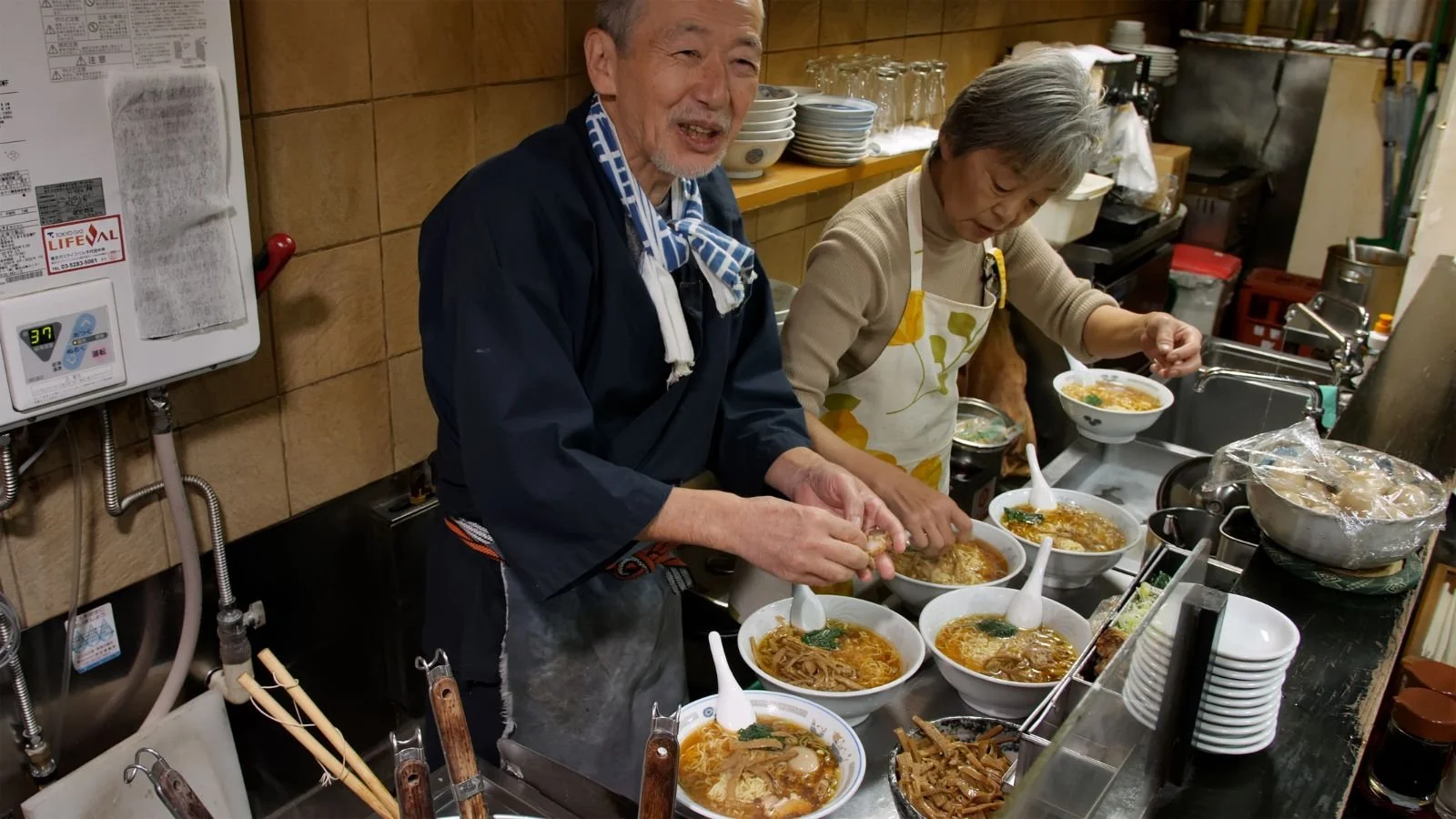Michael Ward on Wednesday, October 12
★★★★
An absolutely lovely and charming film, Come Back Anytime embeds viewers in Japan, with Masamoto Ueda, the owner and proprietor of Bizentei, a ramen noodle bar in Tokyo. Full of mouth-watering visuals and generating, at least for one viewer, an obsession with ramen, the film celebrates the work ethic, the dedication, and the loyalty Masamoto has to his life’s work.
Directed by John Daschbach, Come Back Anytime finds an amiable and accessible Masamoto, running his restaurant six days a week, there from open to close. An infectious personality, you see his pride and personal joy in talking with customers, teasing his regulars, and leaving them full and satisfied; an empty bowl left behind serving as a symbol of a job well done.
We learn that it was something of a rocky road for Masamoto to open Bizentei. Young and raising a family with his wife Kazuko, he was largely an absent, hands-off father by everyone’s acknowledgment. He suffered a debilitating gambling addiction, pursued half-hearted business ventures and was stumbling through life until his father-in-law provided him a chance (a last chance perhaps?) to turn things around and provide consistently for his family.
That opportunity afforded Masamoto the chance to start anew with Bizentei, and he has really never looked back. Daschbach spends time with Masamoto and Kazuko, but he also speaks to a number of regular customers who see Bizentei as more than just a ramen shop; they see it as a surrogate home of sorts. A place of comfort. A place of joy and escape. While learning of Masamoto’s cooking techniques and seeing that days off are spent combing his garden spots for fresh herbs and vegetables, it’s the personal testimonials that make Come Back Anytime a little better film than you might anticipate.
One may think of the terrific 2011 documentary Jiro Dreams of Sushi as comparison, but Daschbach paints a different portrait with his subject than director David Gelb did with his. By expanding the scope, we see a more well-rounded, though almost universally positive, look at someone who seemingly never stops refining and bettering his craft.
When Masamoto retires, he is very clear: The restaurant is not to be handed down or sold, it exists for his family, in this moment and at this time. When he goes, it goes. For those who have spent more than 20 years coming to Bizentei and getting their daily interactions with Masamoto, that will prove for sure to be a sad day.
And while it is hinted that Masamoto’s loyalty to his restaurant has come at something of a personal cost, in terms of family connection and involvement, Daschbach doesn’t linger there. Instead, he gives us a look at someone who has devoted his life to giving a gift of nourishment to others. The film feels comforting, making it hard not to be envious of those truly able to Come Back Anytime.

